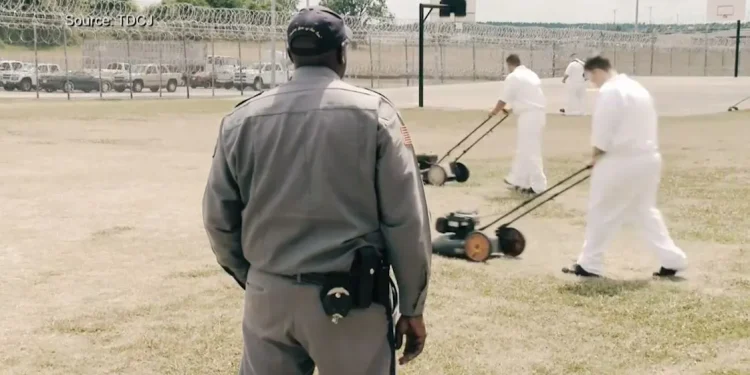As the largest state prison system in the country attempts to better manage an inmate population of over 130,000, state lawmakers discovered in a new report that the Texas Department of Criminal Justice’s staffing shortfalls jeopardize the safety of staff, inmates, and the public.
The report was put together by the Sunset Advisory Commission, a group of parliamentarians charged with examining the effectiveness and efficiency of government agencies, in advance of the upcoming legislative session, which starts in January.
The main lesson is that a “staffing crisis” brought on by a big prison population and a shifting workforce has made it “almost impossible” to appropriately staff certain institutions, increasing the risk to both staff and inmates.
Nearly half of correctional officers reported they see “adverse events” like attacks or escape attempts on a daily or weekly basis, and 40% of correctional officers stated they felt uncomfortable in TDCJ facilities. The department’s vacancy rate for correctional officers was close to 30% in 2023, a minor decrease from 2022.
Inmates’ quality of life is also negatively impacted by the scarcity, as several rehabilitation-related posts are frequently “entirely unfilled.” Inmates lose privileges when there aren’t enough guards to keep an eye on their time outside the cell.
Programming is reduced when the units are understaffed, and it goes without saying that you are not permitted to leave your cell or dorm. There is really limited access to even the church and the recreation yard,” Jennifer Toon told Nexstar. After 20 years in TDCJ imprisonment, Toon is currently the leader of the Lioness Justice-Impacted Women’s Alliance, which supports prisoners. She claimed that her life was not made better by her own experience.
“In a nearly two-decade journey, it never healed my life,” she remarked. “I don’t think that people can be healed and restored in jails or other carceral environments. Without the severe punishment and degradation that people experience internally, we can have responsibility.
The Sunset investigation also discovered that the lack of workers puts public safety at risk since overworked employees are less alert and may not prevent escapes.
For instance, convict Gonzalo Lopez killed five people after breaking out of TDCJ custody in 2022. A third of the positions at his unit were unfilled on the day of his escape, according to an investigation that explicitly linked the tragedy to a staffing deficit.
TDCJ will discuss suggested adjustments with lawmakers on Thursday. With the recent launch of its “2030 Vision” project, the department set lofty targets for recruiting, rehabilitation, and staffing.
“The TDCJ aspires to be Texas’ top employer.” In order to strengthen recruitment and retention efforts, the agency will concentrate on changing the culture and raising morale. According to the department’s website, employees will vote for the agency as the greatest place to work in Texas by 2030.
Lawmakers suggest that the legislature mandate that the agency close certain understaffed sites and create a long-term staffing strategy. Although the ideas are beneficial, Toon, who plans to appear before the committee on Thursday, thinks more has to be done to enhance circumstances for both staff and prisoners.
“Dummy, it’s not the money,” she remarked. “It’s the culture, really. When other people are mistreated and treated with less dignity, they leave that society. That is also how the employees are treated. Salary increases have occurred in the past, but they haven’t truly altered the jail culture.
Reference Article


